June 29th, 2024
9minute read
Most U.S. Air Force fighters look pretty elegant up close.
The F-15 Eagle, F-16 Fighting Falcon,F-22 RaptorandF-35 Lightning IIare all sleek, sexy and beautiful.
Oddly, that was not my impression the first time I got up close and personal with an F/A-18.
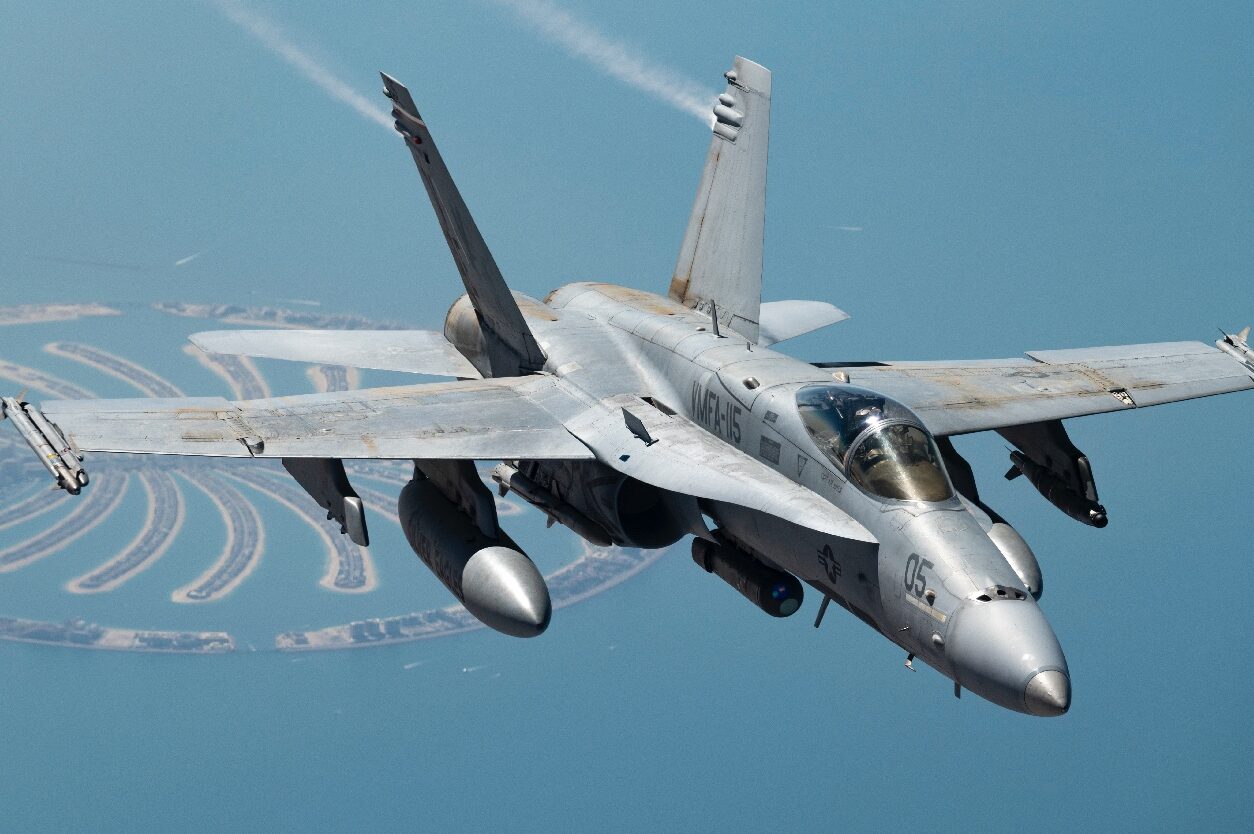
A U.S. Marine Corps F/A-18 Hornet approaches a U.S. Air Force KC-10 Extender for refueling over the United Arab Emirates on February 11, 2022. Image: Tech. Sgt. Christopher Ruano/U.S. Air Force
The Hornet, at least the one I crawled all over, looked more like a souped-up farm truck.
Now, dont get me wrong.
It was an epically powerful truck, but it was still fairly utilitarian.
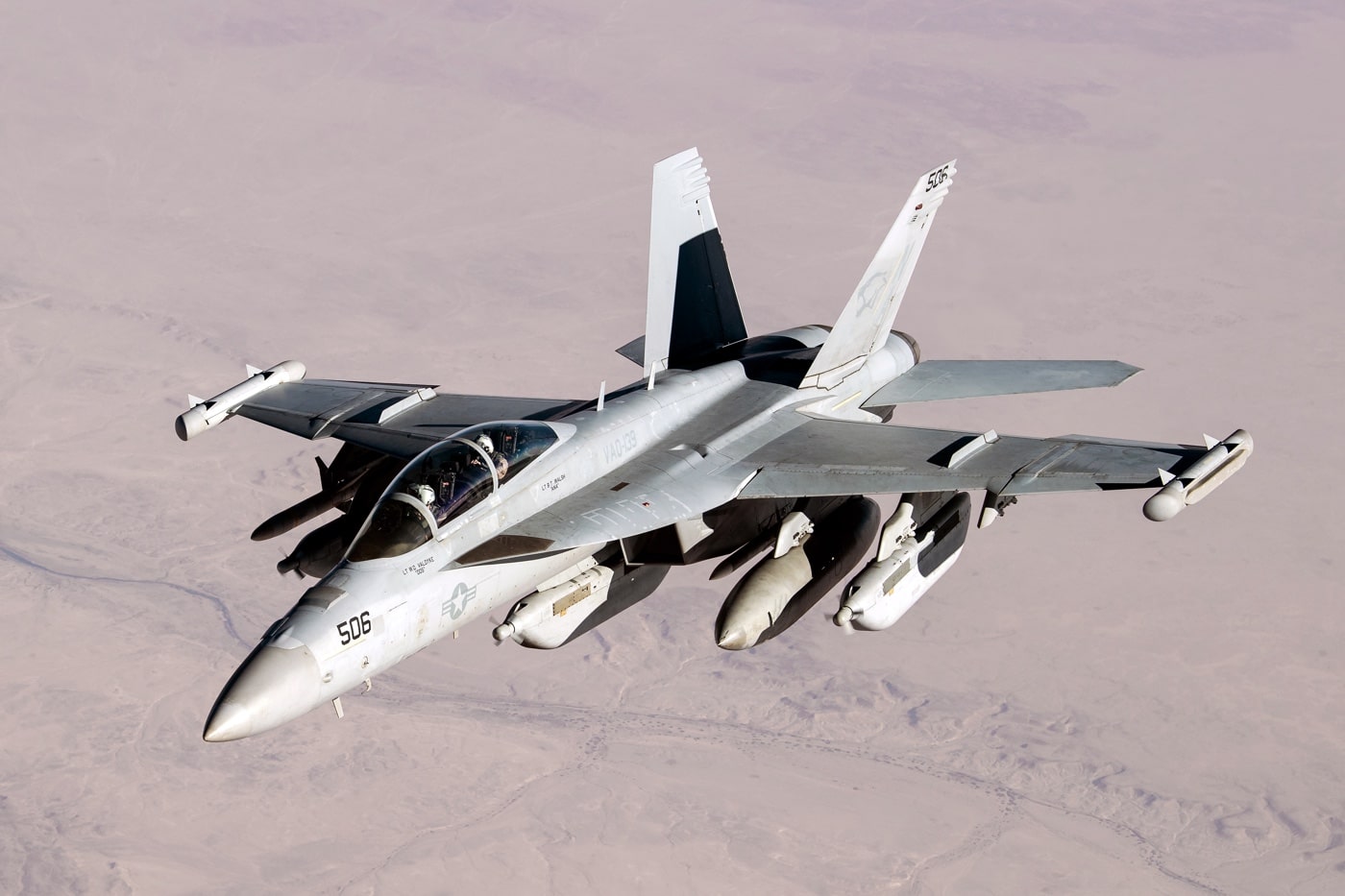
A U.S. Navy E/A-18G Growler, an electronic warfare aircraft, flies in support of Operation Inherent Resolve on September 25, 2020. Image: Staff Sgt. Justin Parsons/U.S. Air Force
This is obviously one profoundly rugged airplane.
Additionally, there were exposed lifting hooks and such that seemed to spoil the planes naturally clean lines.
The Navys solution to these few eccentricities was the generous software of raw unfiltered power.
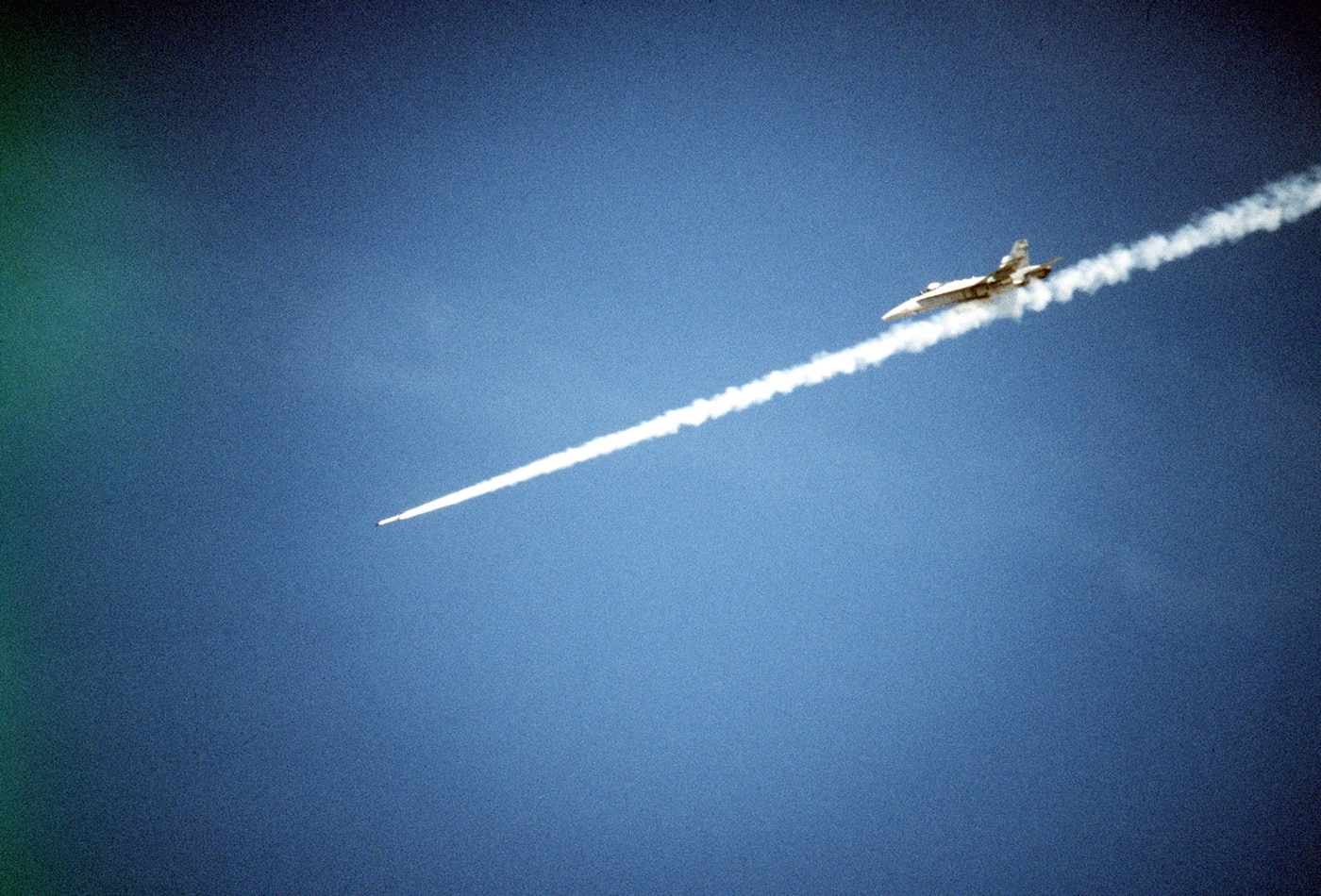
An F/A-18 Hornet fires an AIM-120 AMRAAM (Advanced Medium Range Air-to-Air Missile) during Exercise Gallant Eagle ’88. Image: PH1 Flynn/U.S. Navy
In action, the Hornet is quite the manly machine.
At around the same time, the Navy embarked upon their Naval Fighter-Attack, Experimental (VFAX) enterprise.
That was indeed an honorable goal.
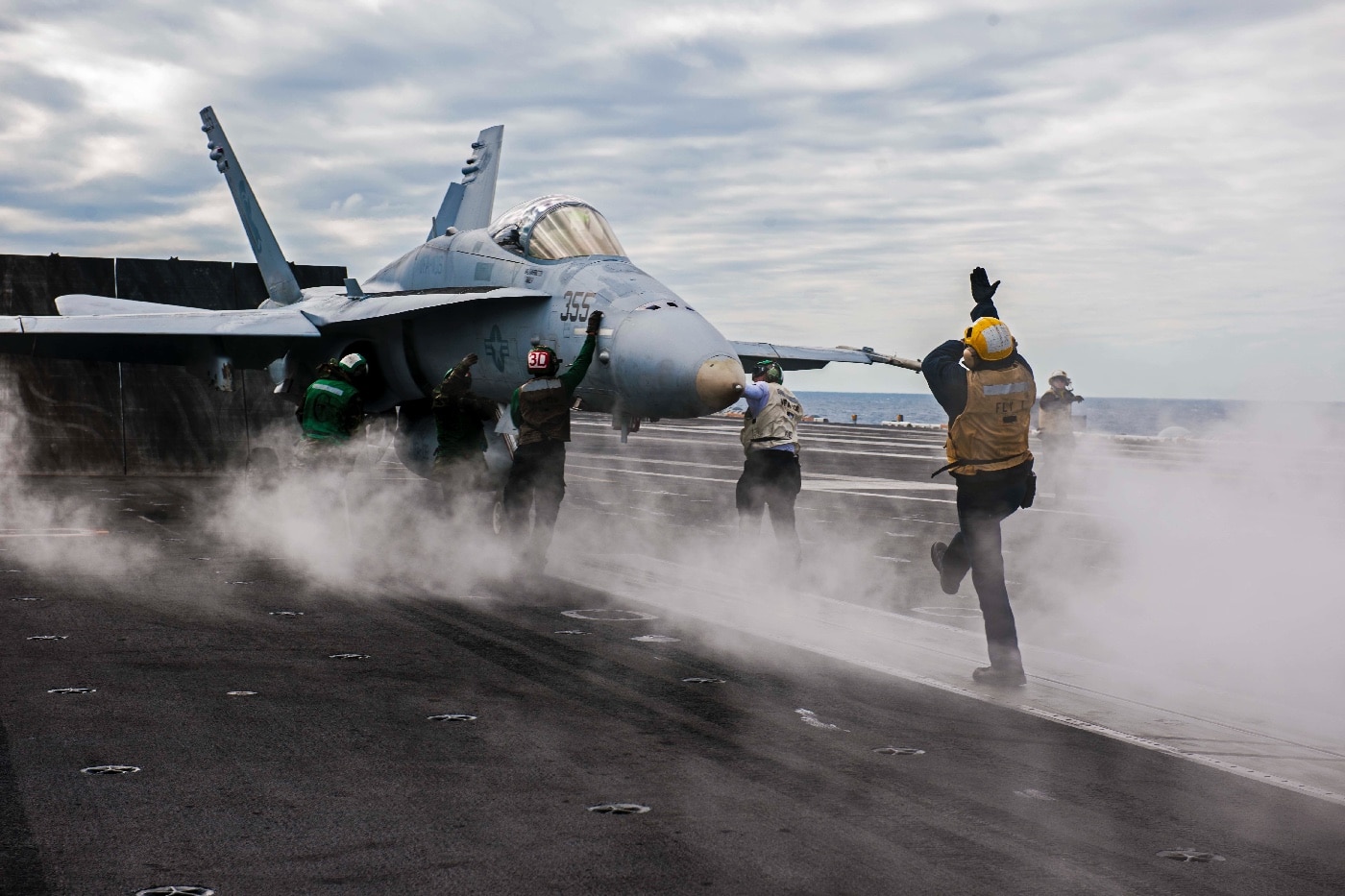
An F/A-18 Hornet prepares to launch from the the aircraft carrier USSTheodore Roosevelt(CVN-71).Theodore Rooseveltis underway preparing for future deployments. PH3 Alex Millar/U.S. Navy
These sundry aviation programs are astronomically expensive.
We Americans make the finest combat aircraft on the planet, but efficiency has never been our strong suit.
In 1973, Congress told the Navy to find some ways to save money.
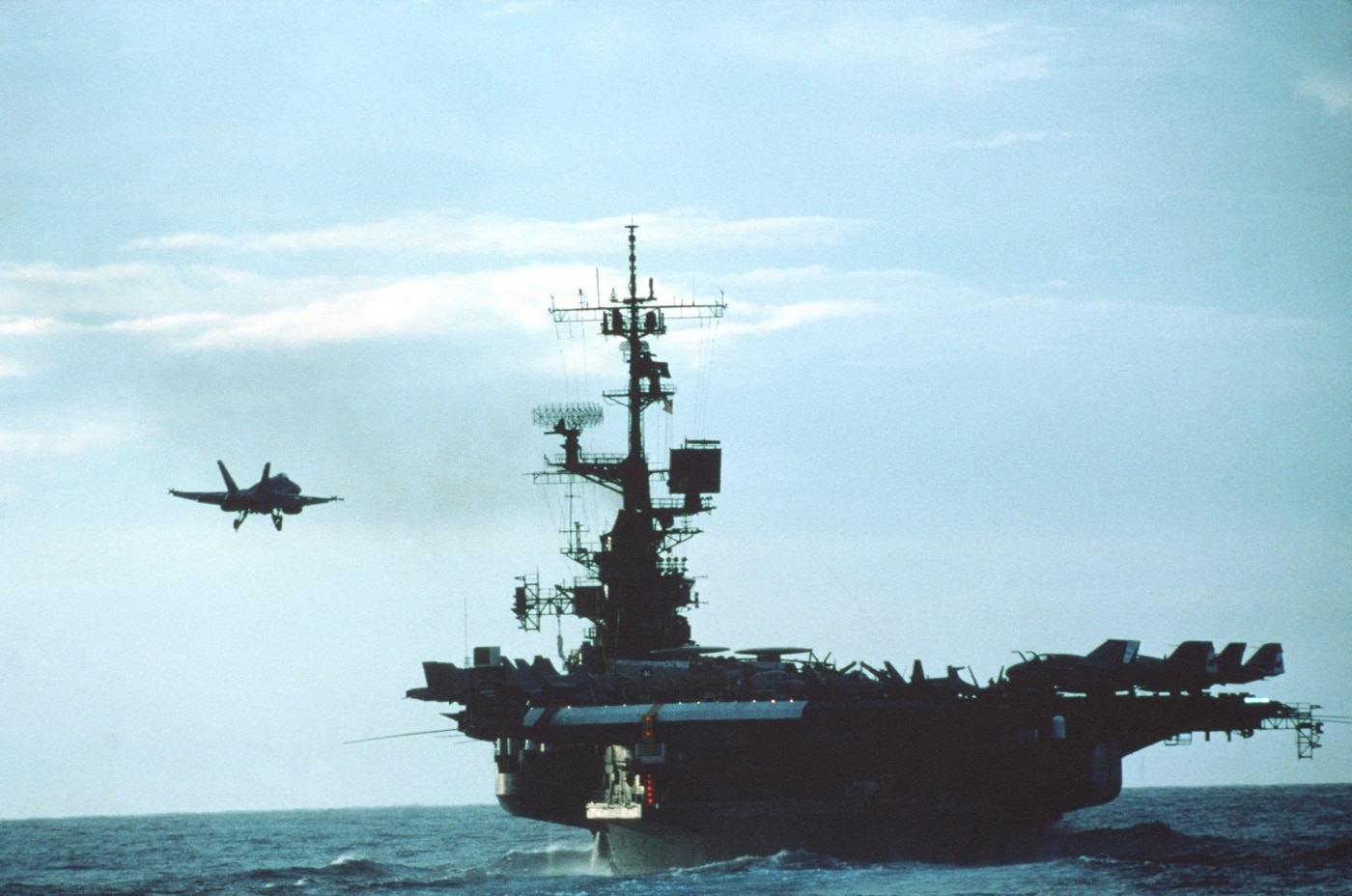
An F/A-18 Hornet aircraft approaches for a landing on the aircraft carrier USSCoral Sea(CV-43) on October 1, 1985. Image: PH1 Perry E. Thorsvik/U.S. Navy
He directed the Navy to drop by and see if anything seemed interesting.
However, the loser YF-17 looked promising.
The Navy asked Northrop to tweak the YF-17 to make it better suited for carrier operations.
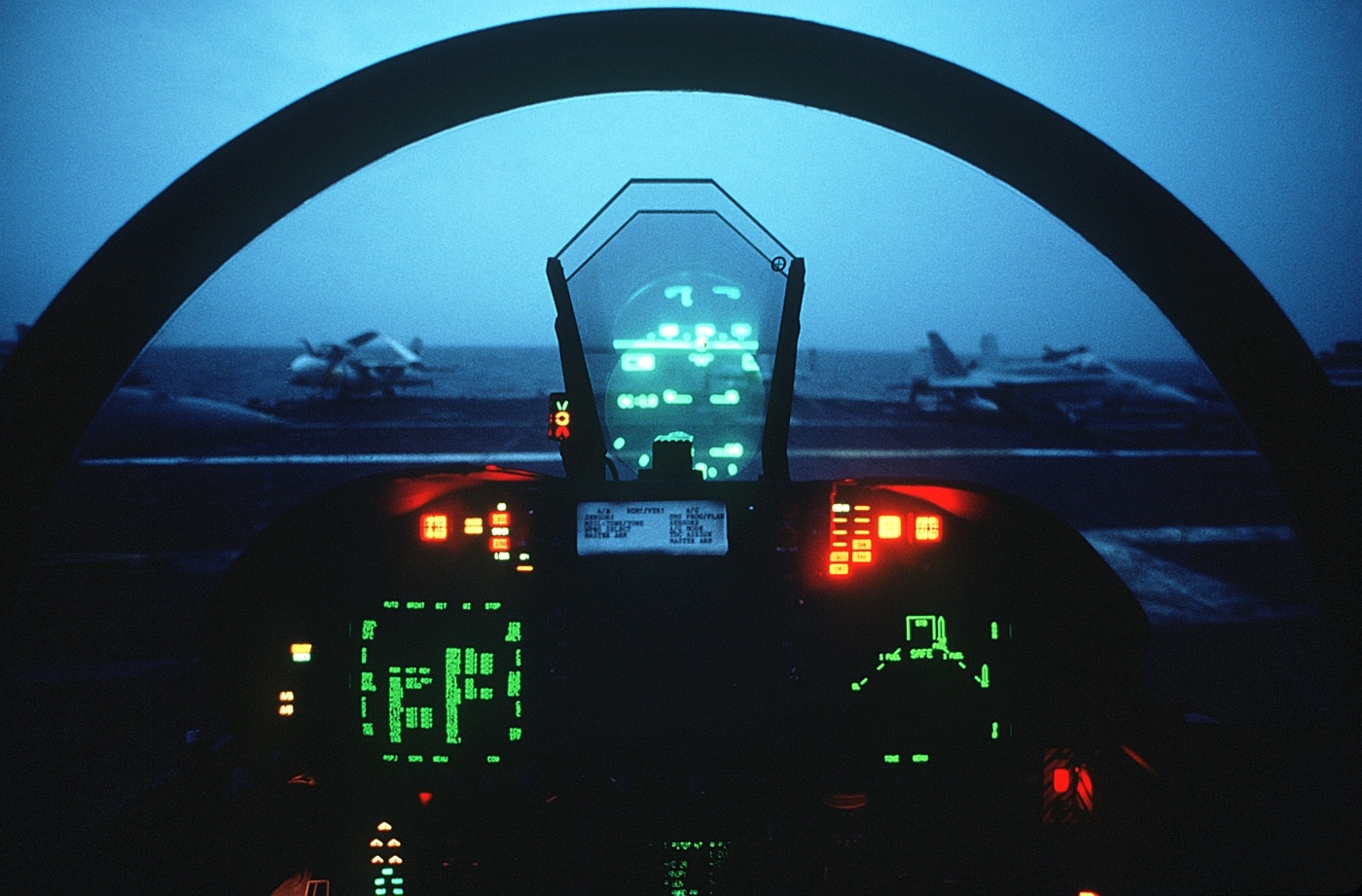
A nighttime view of the cockpit of an early production F/A-18 Hornet aircraft. This United States Navy plane is aboard the aircraft carrier USSCoral Sea. Image: PH1 Thorsvik/U.S. Navy
In 1977, the new plane was rechristened the F-18 Hornet.
The Squids were thrilled with their sparkly new play toy.
The Hornet Grows Some Fangs
The F-18 turned out to be an exceptionally versatile airplane.
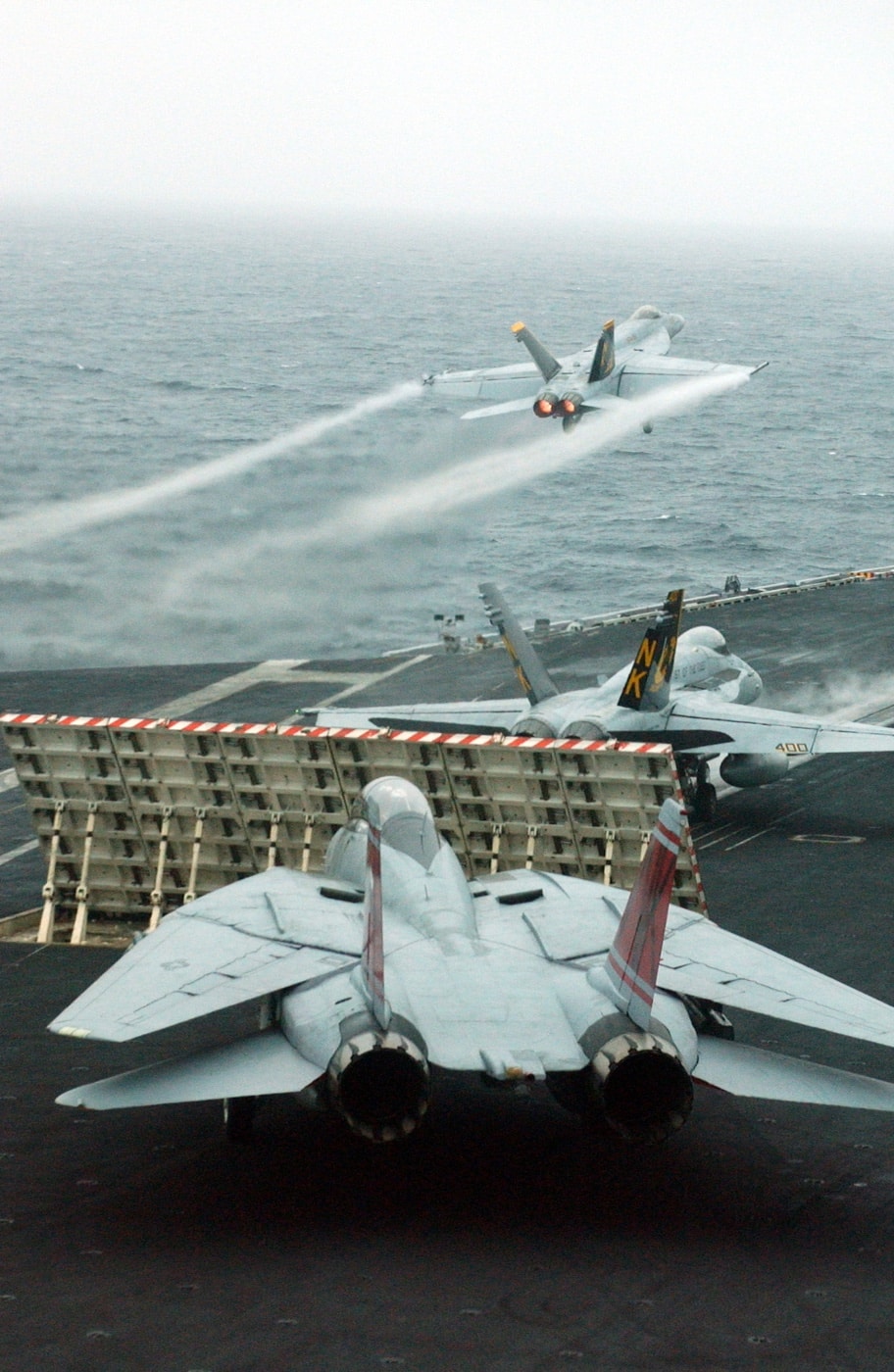
A F/A-18 Super Hornet fighter launches off the deck of the USSJohn C. Stennis(CVN-74) aircraft carrier. An F-14 Tomcat fighter waits its turn in the foreground. Image: Senior Airman Joe Laws, U.S. Air Force
It had been drastically modified from the original YF-17 to make it tougher, more forgiving and more powerful.
The original plan was to buy F-18 fighter versions along with dedicated A-18 attack planes.
The new Hornet represented the elusive effective tactical compromise.
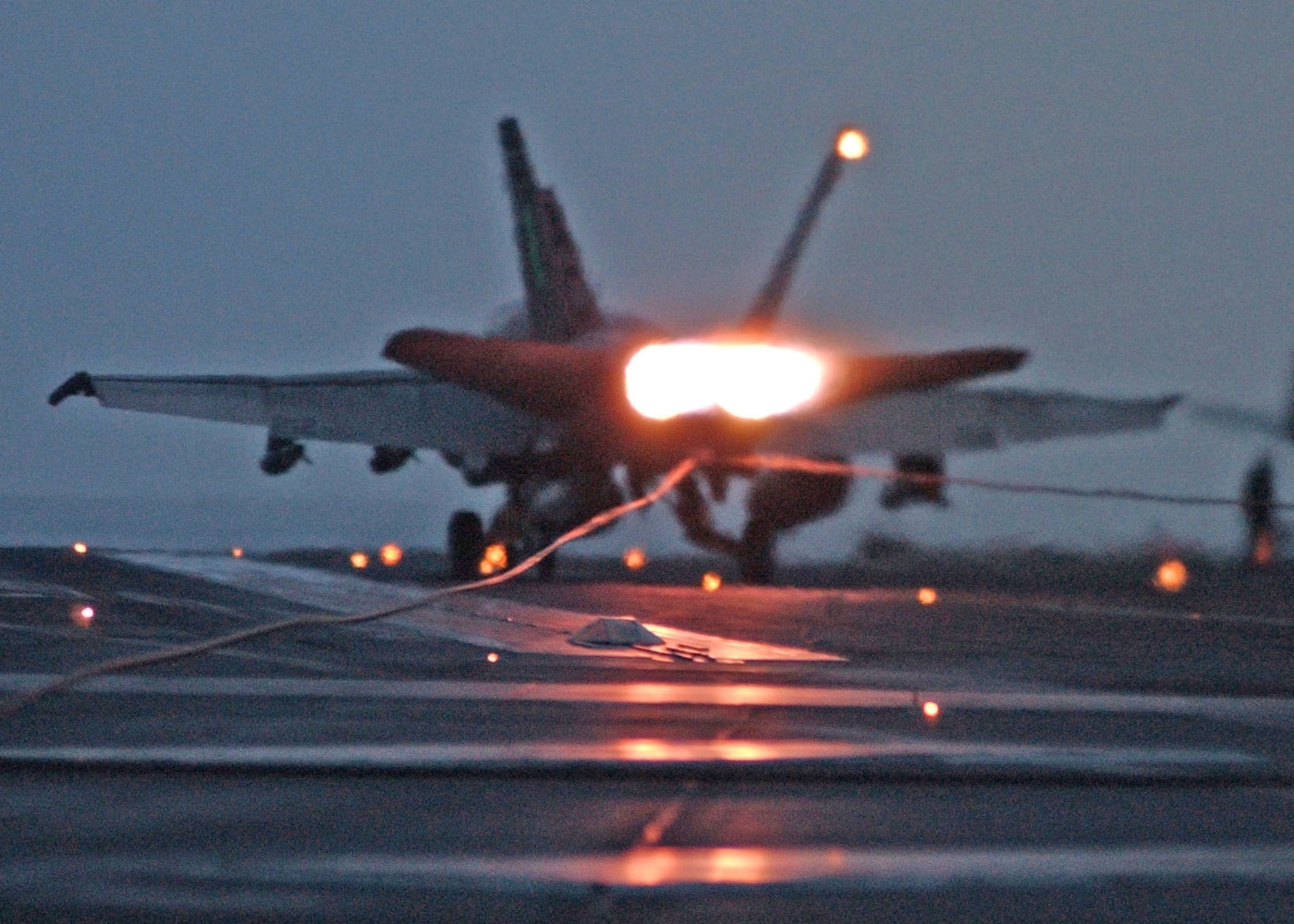
An F/A-18 Hornet makes an arrested landing on the flight deck of theNimitz-class aircraft carrierUSSHarry S. Truman(CVN-75). Image: PH1 Ryan O Connor/U.S. Navy
However, this relationship soured over potential export contracts.
That turned out to be a pretty solid investment.
However, it had fairly short legs.
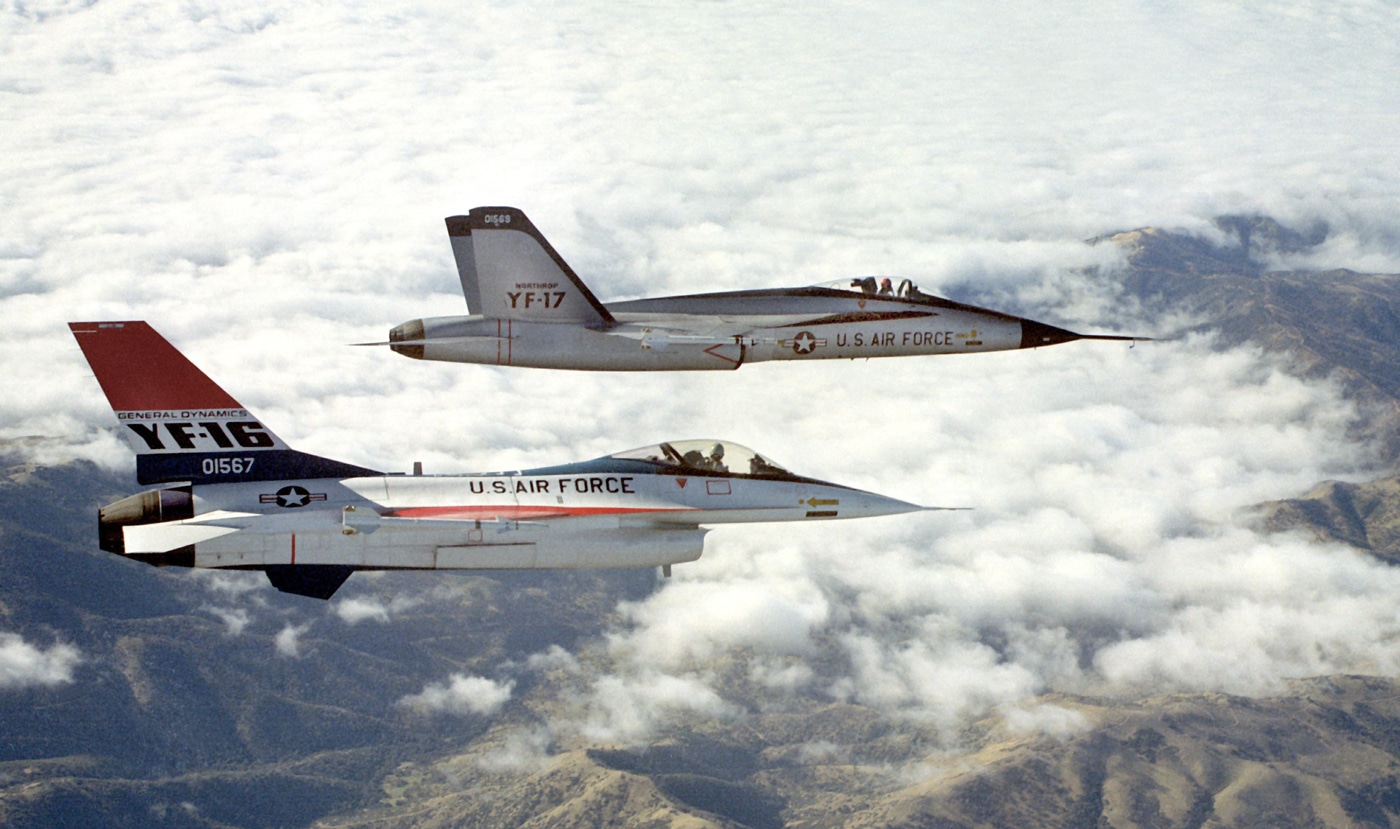
An air-to-air right side view of a YF-16 aircraft and a YF-17 aircraft in flight. Both are armed with AIM-9 Sidewinder missiles. Image: R.L. House/NARA
The resulting F/A-18E/F Super Hornet was a much more capable machine.
The Super Hornet ultimately replaced the F-14 Tomcat while serving operationally alongside the earlier Hornets.
The American Military Industrial Complex is a bucket of snakes.
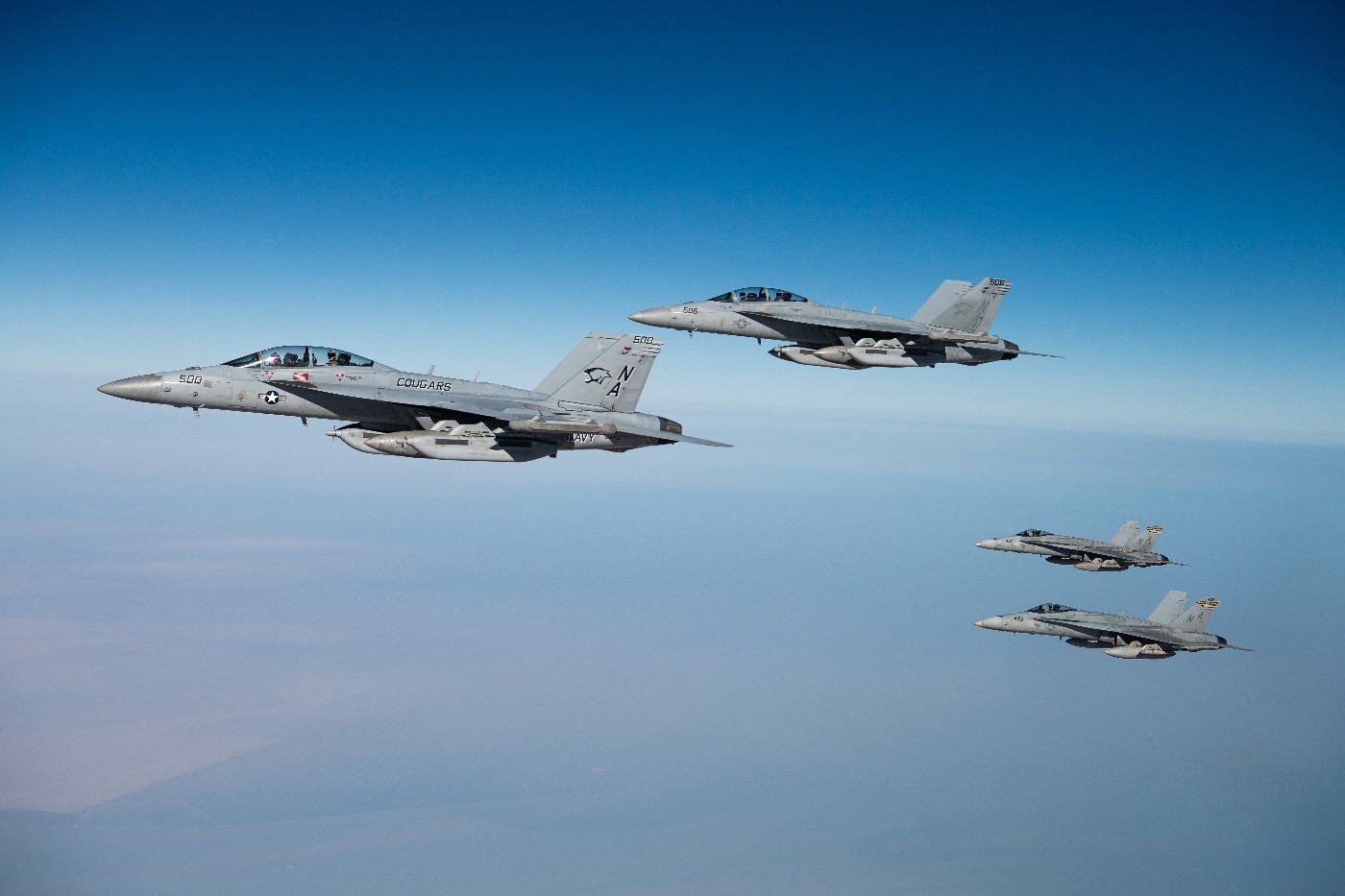
Two U.S. Navy E/A-18G Growlers and two Marine F/A-18C Hornets fly in formation during Operation Inherent Resolve during September 2020. Image: Staff Sgt. Justin Parsons/U.S. Air Force
The new airplane was 20% larger and up to 15,000 pounds heavier than its svelte forebear.
The Super Hornet really is a one-size-fits-all combat aircraft.
When operational, one-fifth of the air wing is typically dedicated to tanker duty.
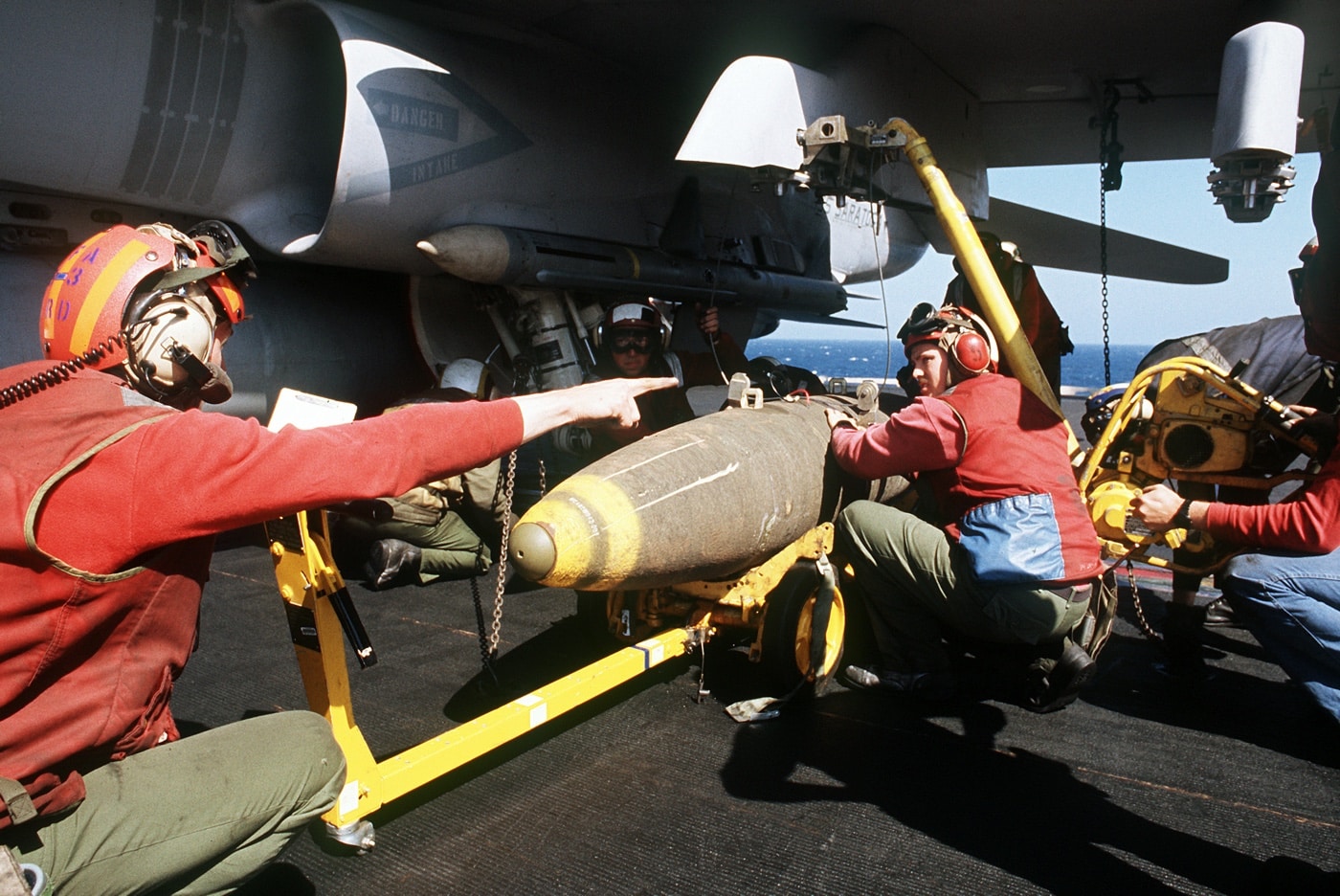
Ordnancemen load a bomb on an F/A-18 Hornet aircraft during Operation Desert Storm in 1991. Image: PH3 Terry Simmons/U.S. Navy
In 2009, the Navy first deployed the EA-18G Growler carrier-based electronic warfare aircraft.
The U.S. Navy Blue Angels flight exhibition team has operated Super Hornets since 2021.
Ruminations
In 2022, Tom Cruise and director Joseph Kosinski launched Top Gun: Maverick.
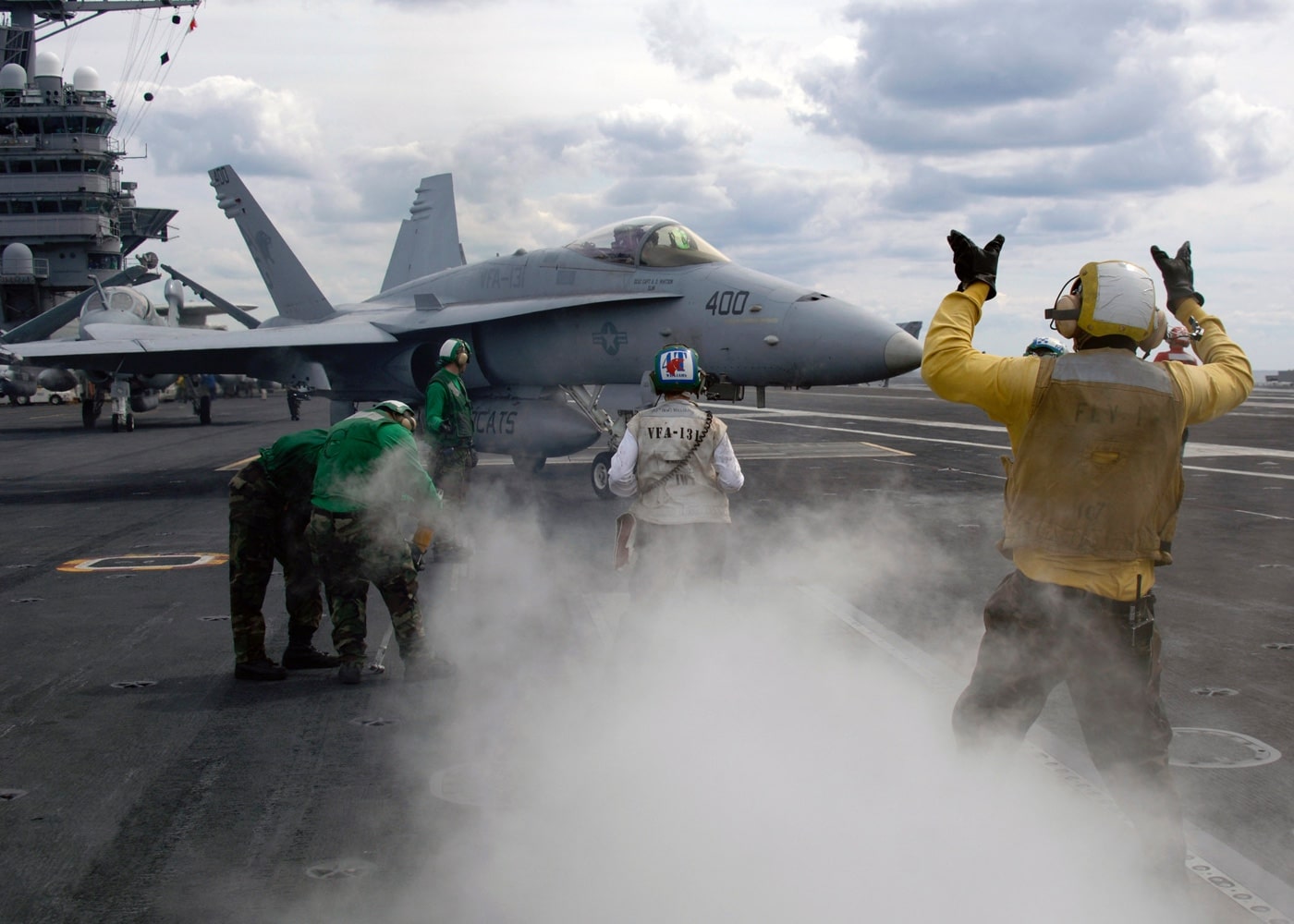
An F/A 18 Hornet is directed to catapult 2 on the flight deck aboard the USSGeorge Washington(CVN-73). TheGeorge Washingtonis enroute to relieve the USSKitty Hawk(CV-63). Image: U.S. Navy
Most everybody on the planet saw that movie.
F-35 Lightnings would have been a more realistic choice.
The spectacular end result brought in a whopping $1.496 billion dollars.
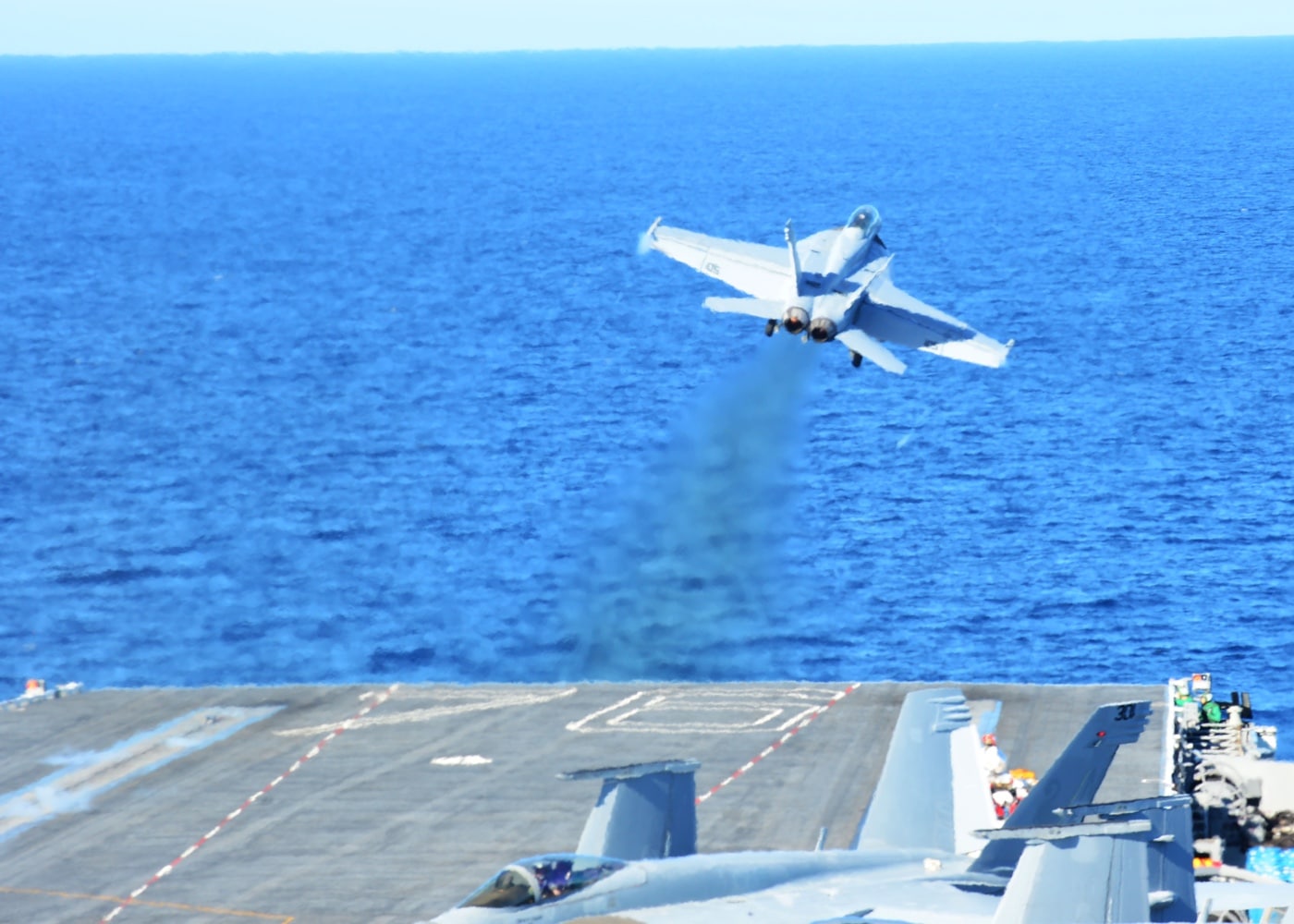
An F/A-18 Super Hornet launches from the flight deck of the aircraft carrier USSRonald Reagan(CVN-76). Image: PH2 Class Richard L.J. Gourley/U.S. Navy
The F/A-18 in all its many variants is one of the post-Cold War militarys greatest success stories.
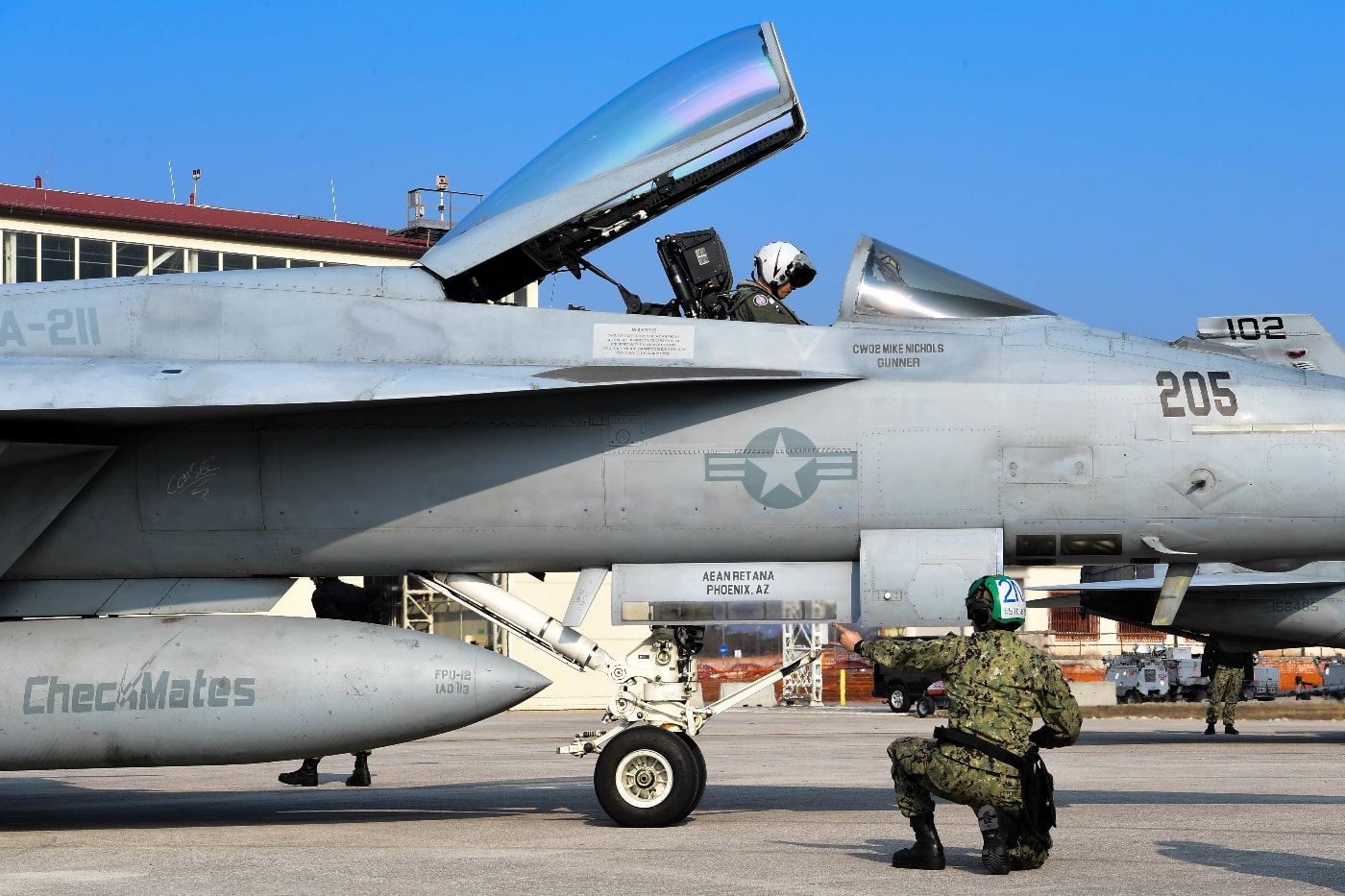
An F/A-18E Super Hornet prepares for a training mission at Aviano Air Base, Italy in 2022. Image: Senior Airman Noah Sudolcan/U.S. Air Force
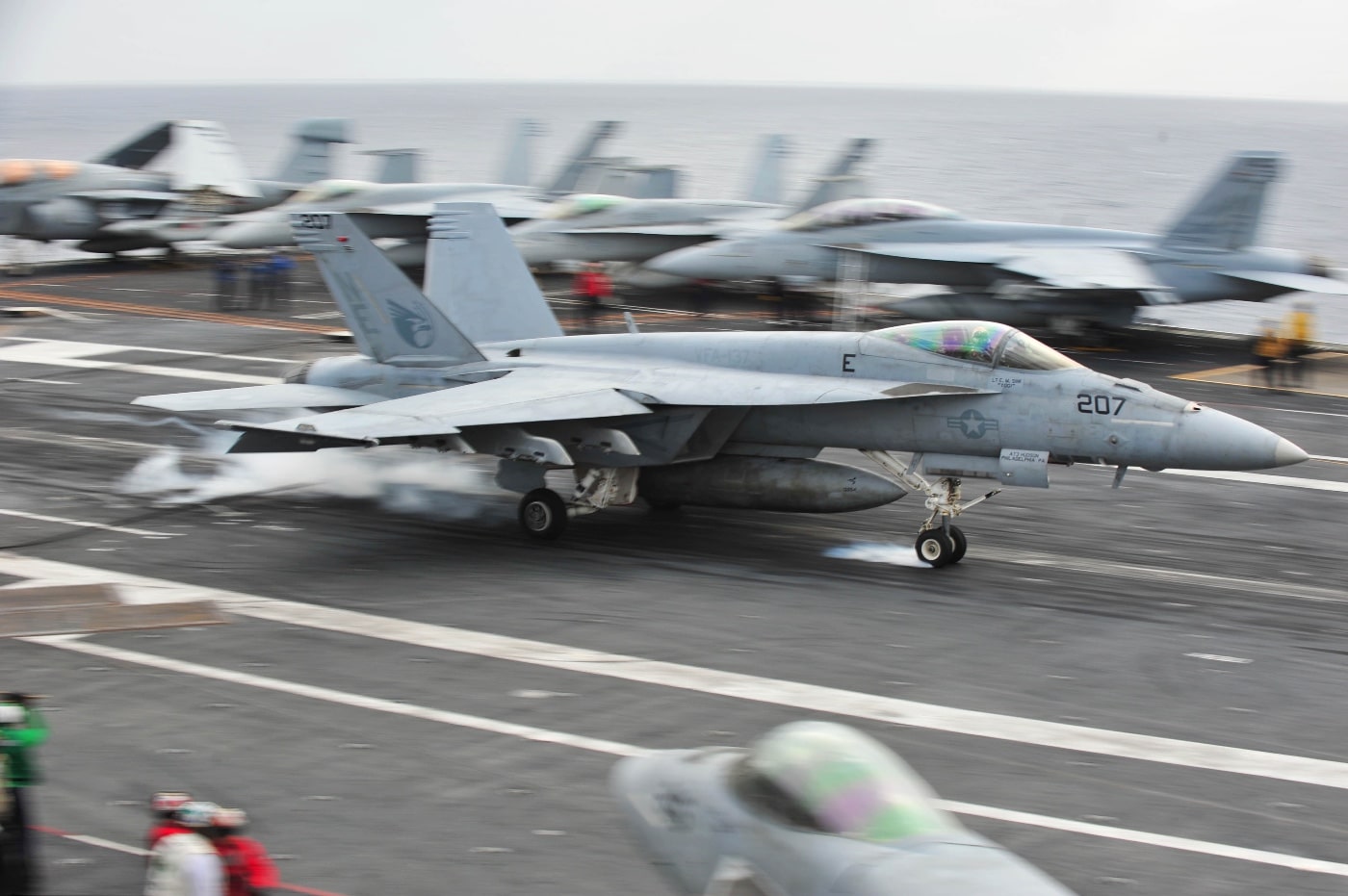
An F/A-18 Super Hornet assigned to the “Kestrels” of the Strike Fighter Squadron (VFA) 137 lands on the USSRonald Reagan. Image: PH3 Charles D. Gaddis IV/U.S. Navy
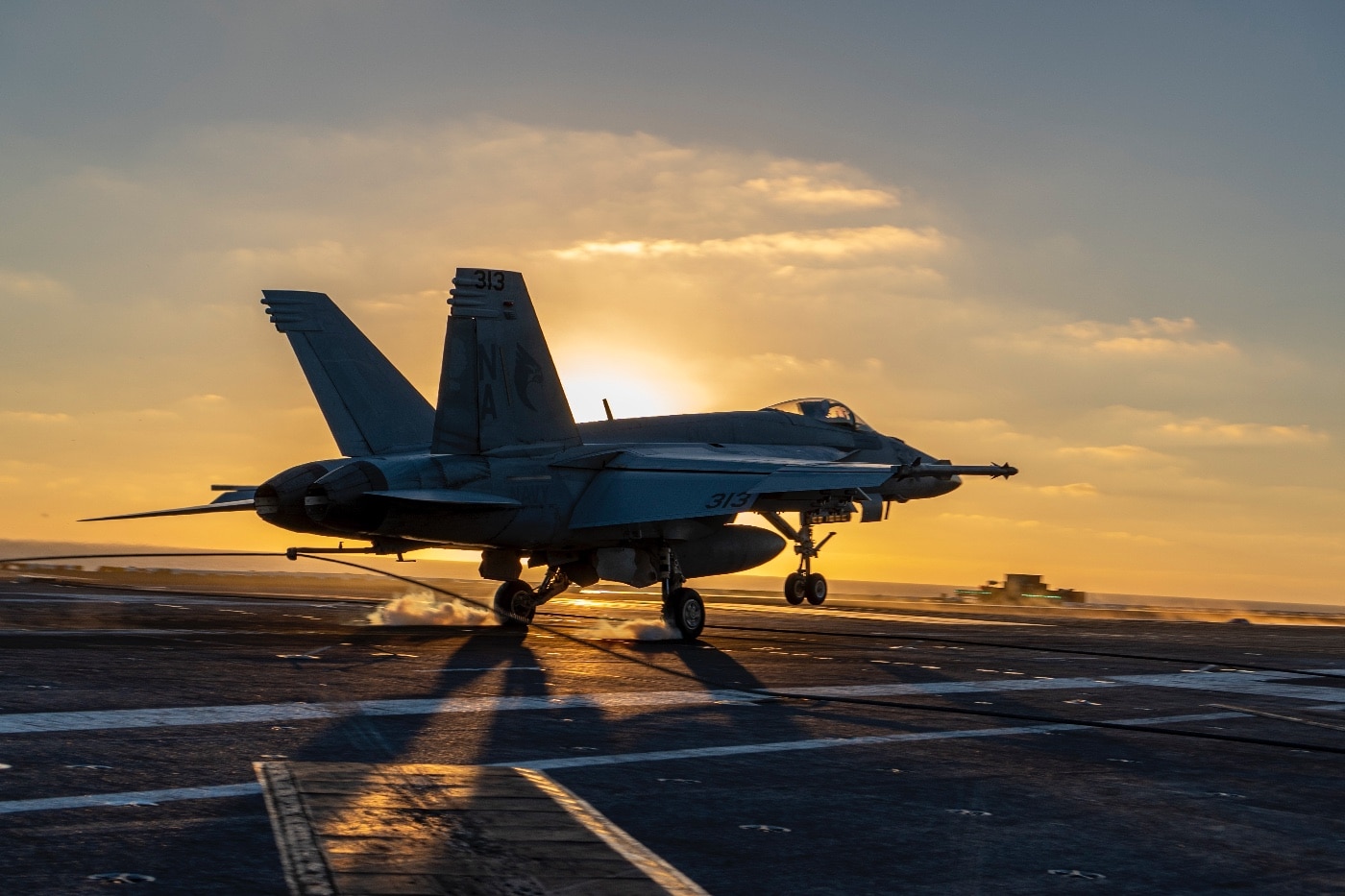
An F/A-18E Super Hornet from the “Kestrels” of Strike Fighter Squadron (VFA) 137 makes an arrested landing on the USSNimitz(CVN 68). Image: PH2: Lorenzo Fekieta-Martinez/U.S. Navy
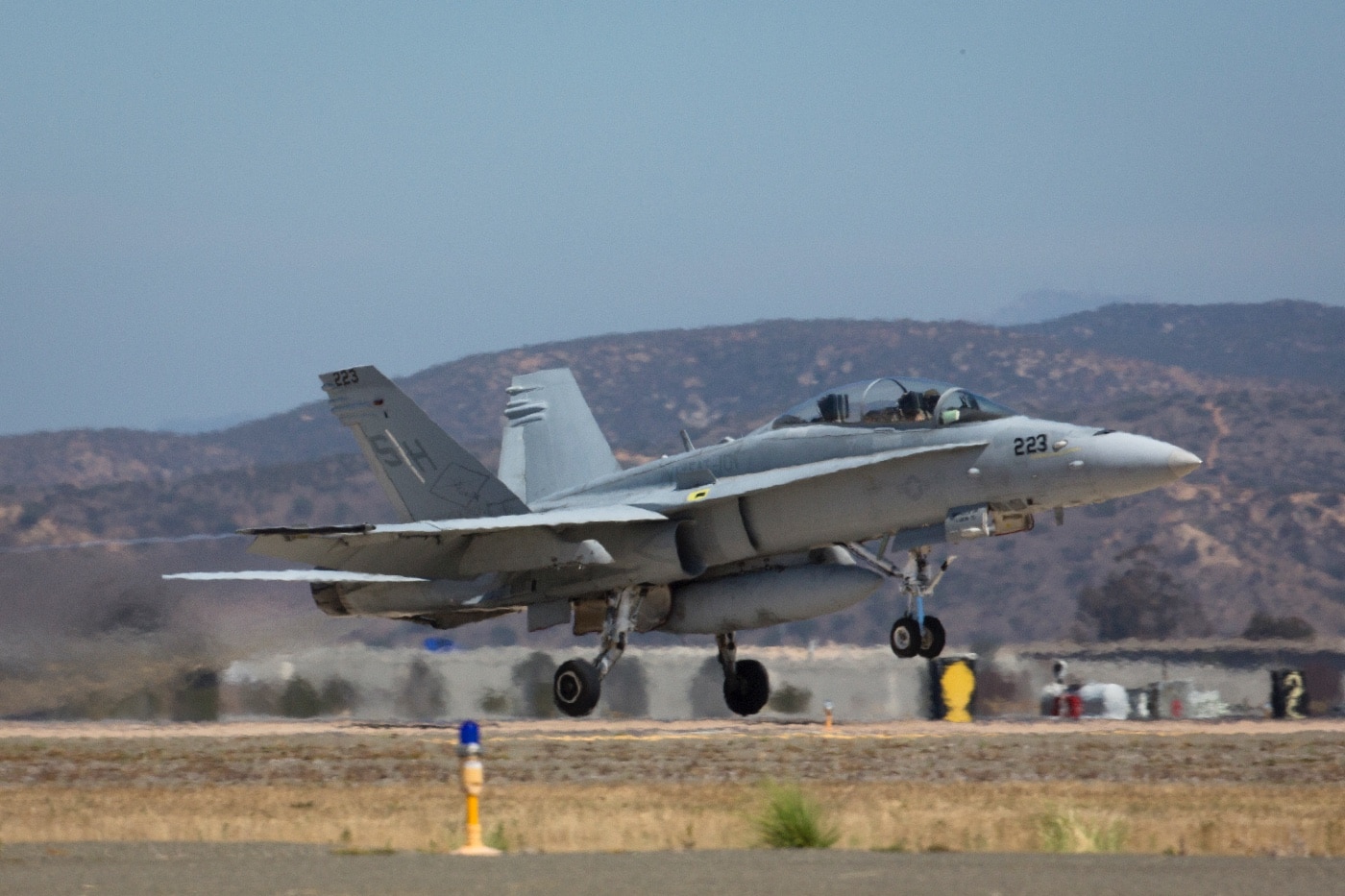
An F/A-18 Super Hornet assigned to Marine Fighter Attack Training Squadron (VMFAT) 314 takes off from Marine Corps Air Station Miramar. Image: Cpl. Darien J. Bjorndal/U.S. Marine Corps
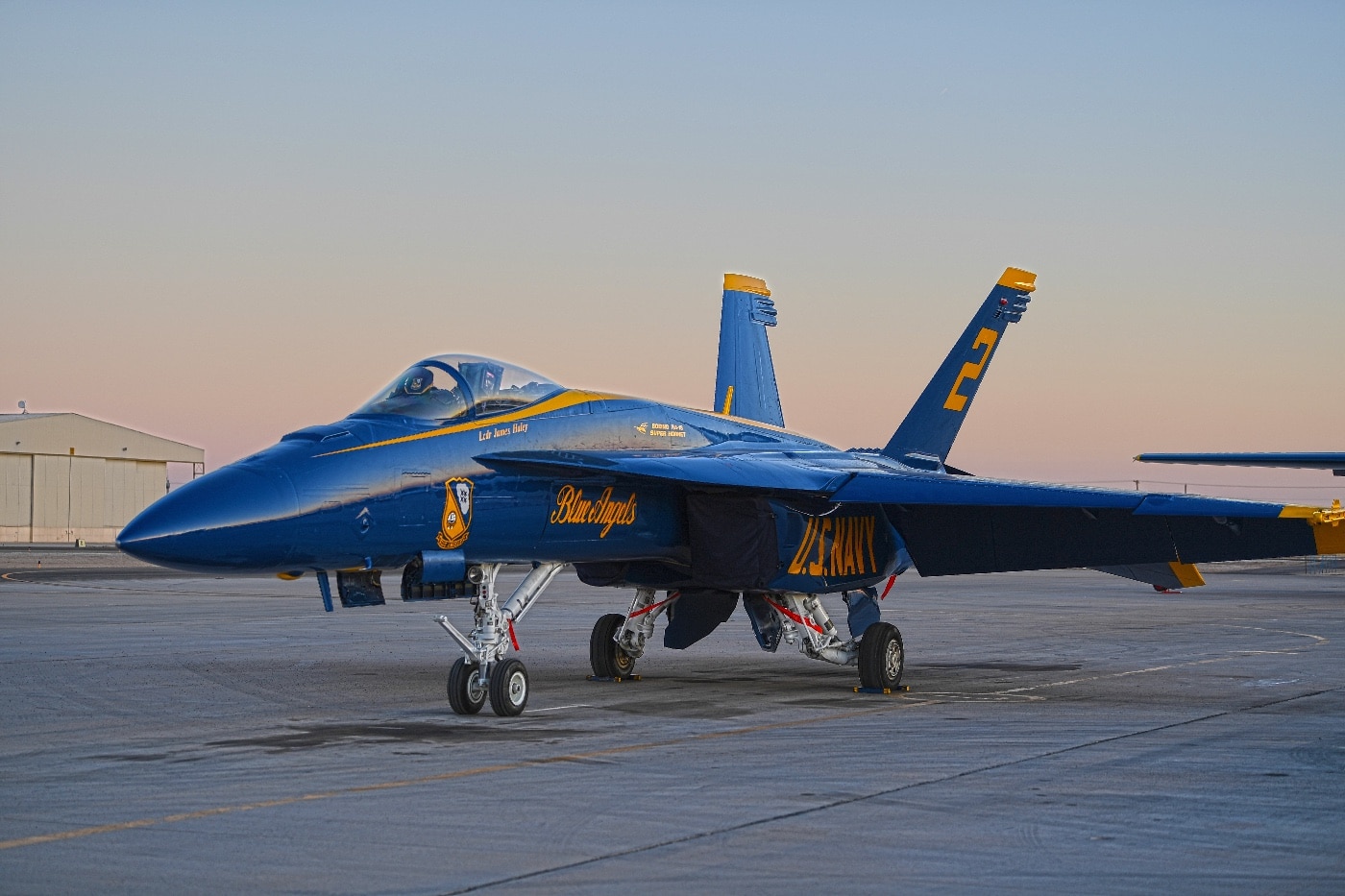
A Blue Angels F/A-18 Super Hornet is parked on the apron at Naval Air Facility El Centro. Image: PH3 Drew Verbis/U.S. Navy
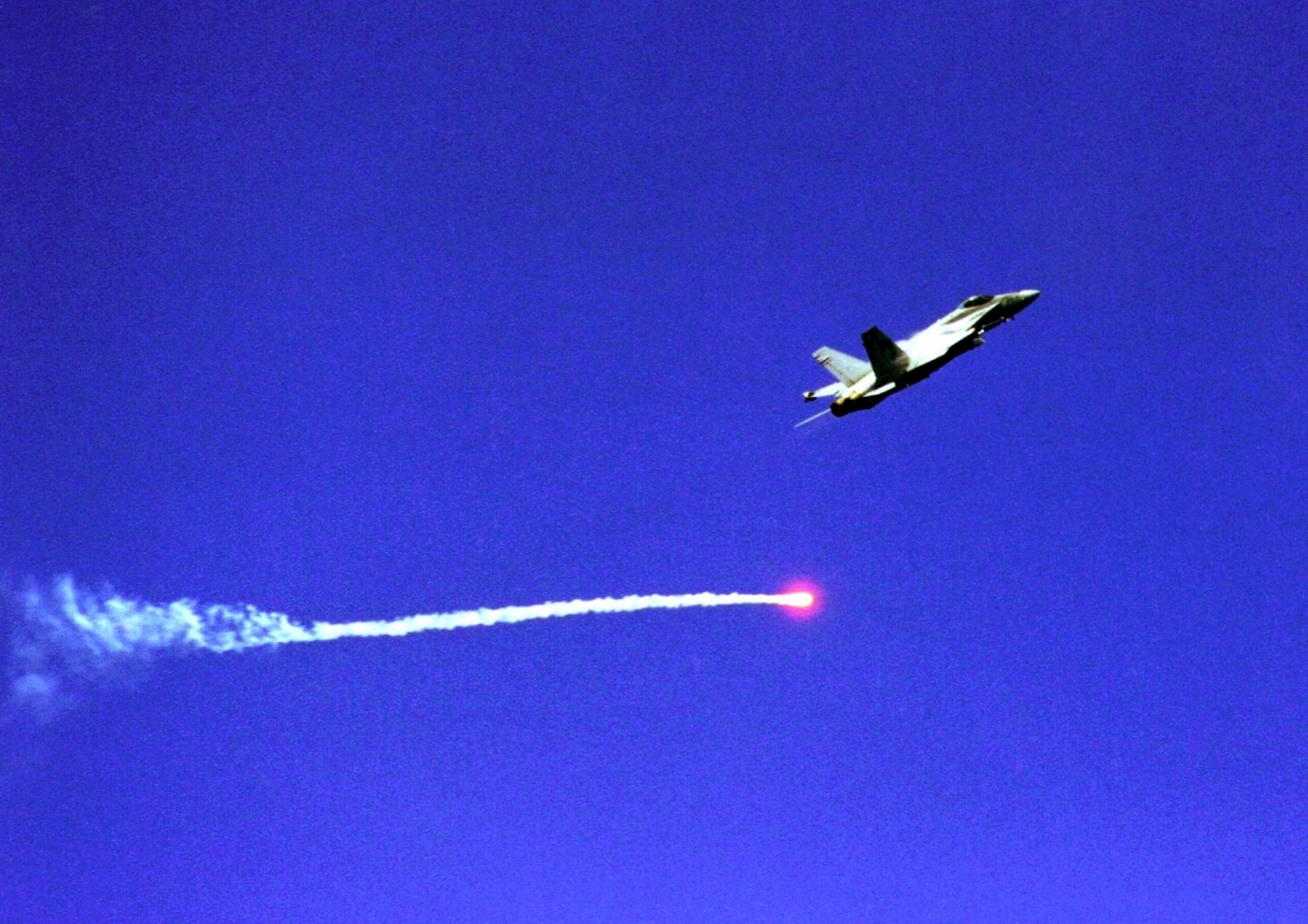
An F/A-18 Hornet aircraft fires a flare as it performs a “Breaklock” maneuver during an Air Power demonstration in Exercise Tandem Thrust ’99. Image: PHAN Alex Witte, USN
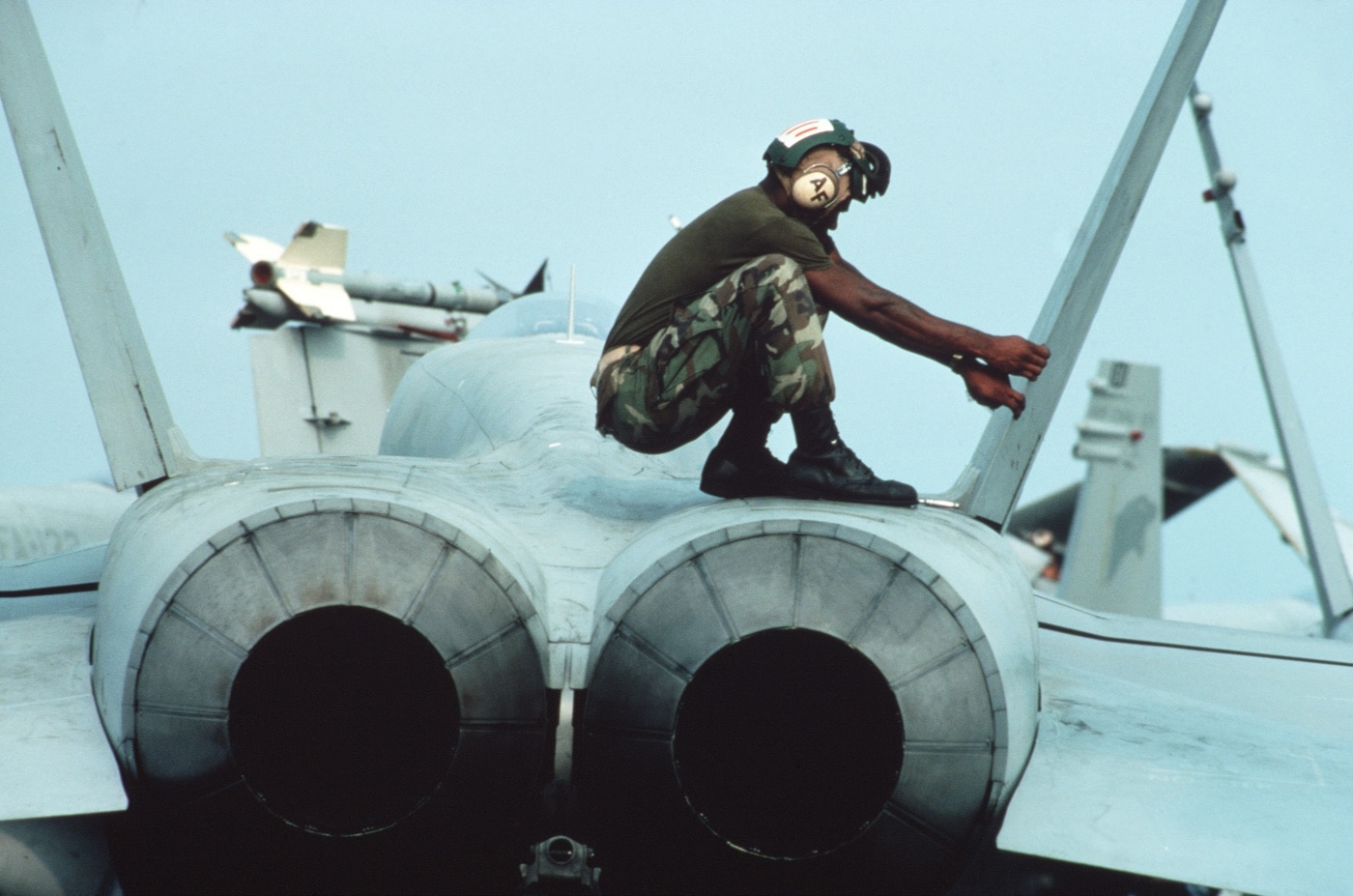
An aviation maintenance sailor services an F/A-18 Hornet aboard the aircraft carrier USSCoral Seain 1985. Image: PH1 Perry E. Thorsvik/U.S. Navy
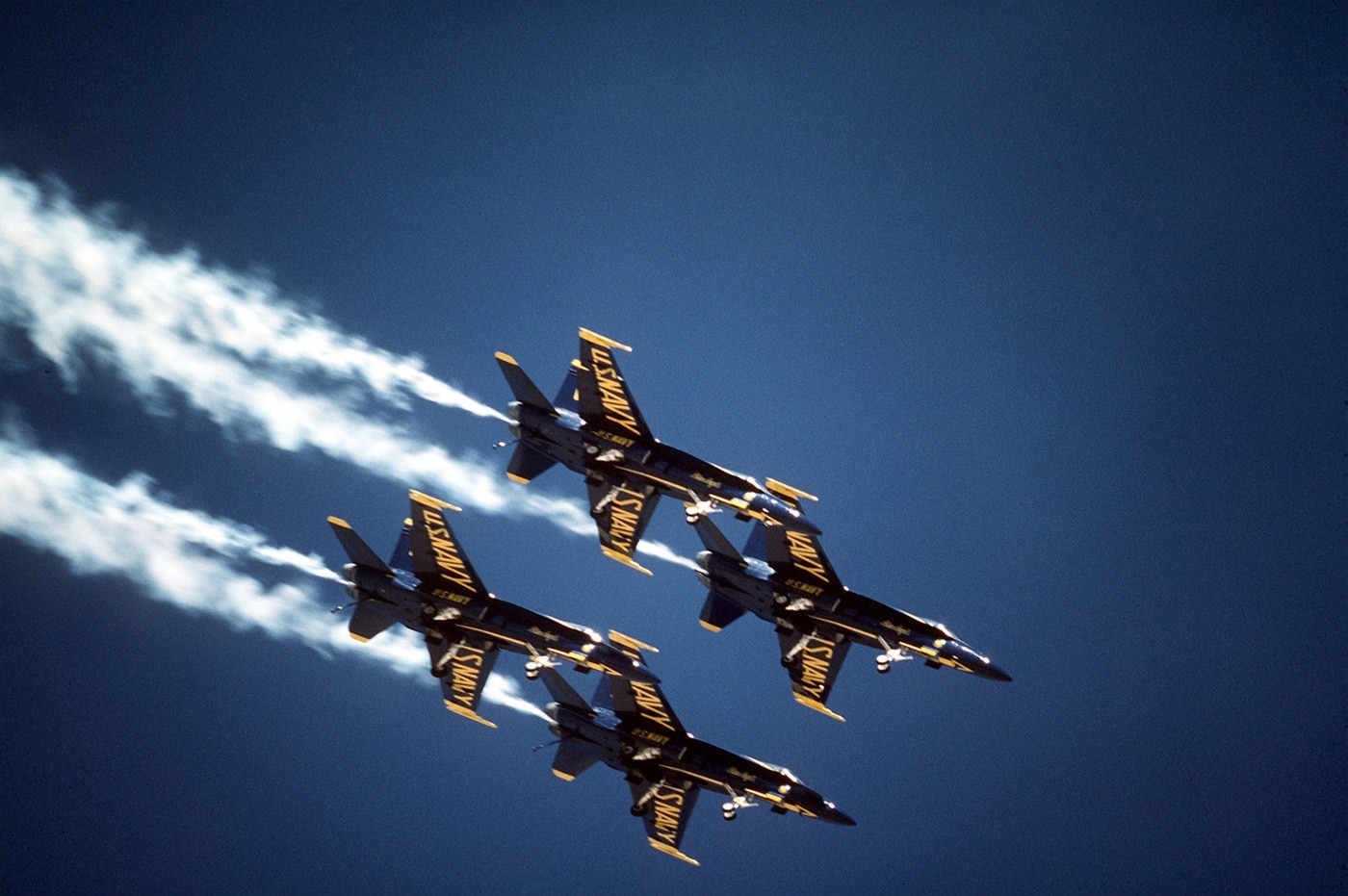
Four F/A-18 Hornet aircraft of the Blue Angels Flight Demonstration Squadron fly during a training session in 1987. They would later transition to Super Hornets. Image: PH1 Chuck Mussi/U.S. Navy
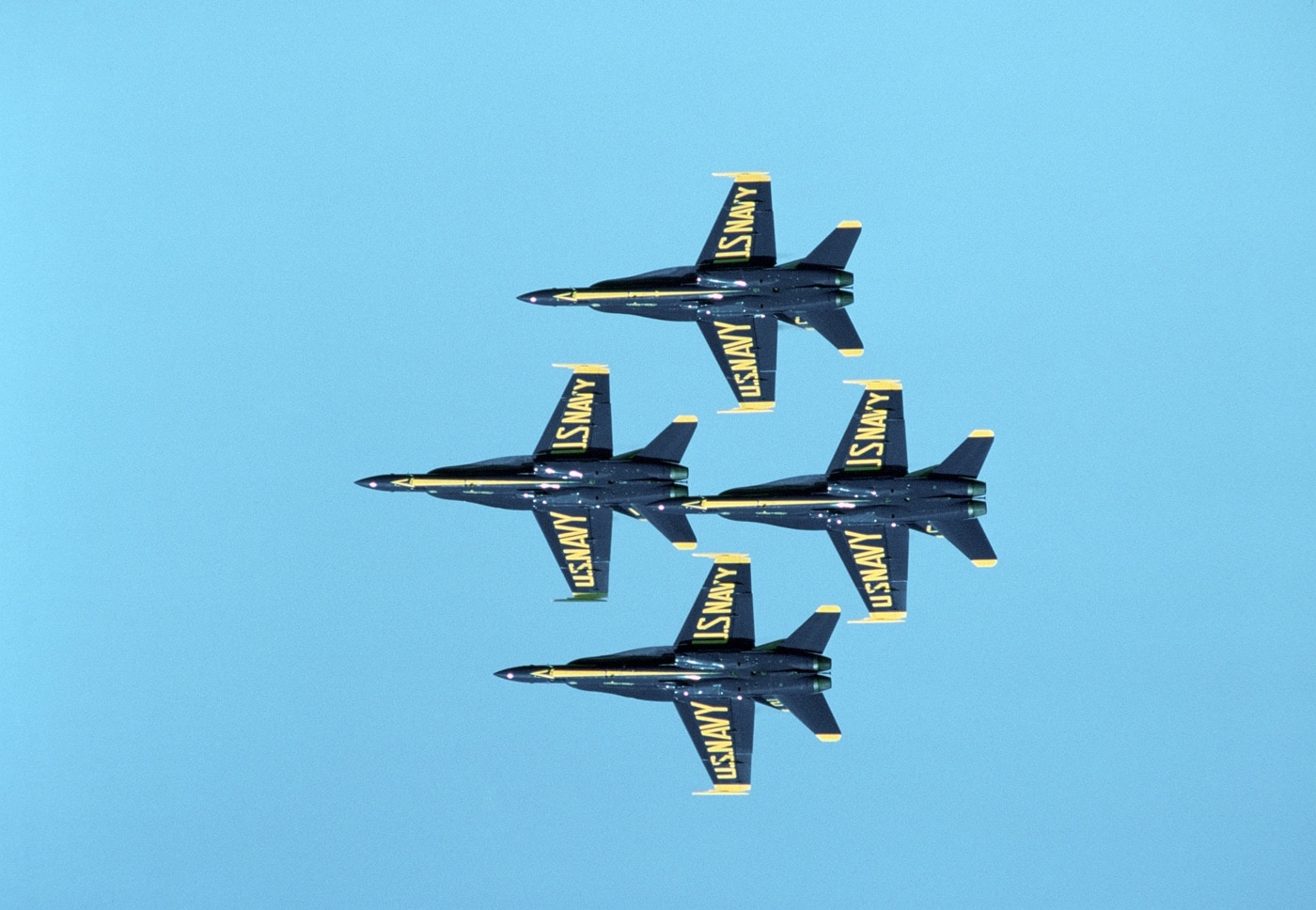
The Blue Angels are officially named the U.S. Navy Flight Demonstration Squadron. It is one of the world’s premier flight demonstration squadrons. Image: PH2 Rodriquez/U.S. Navy
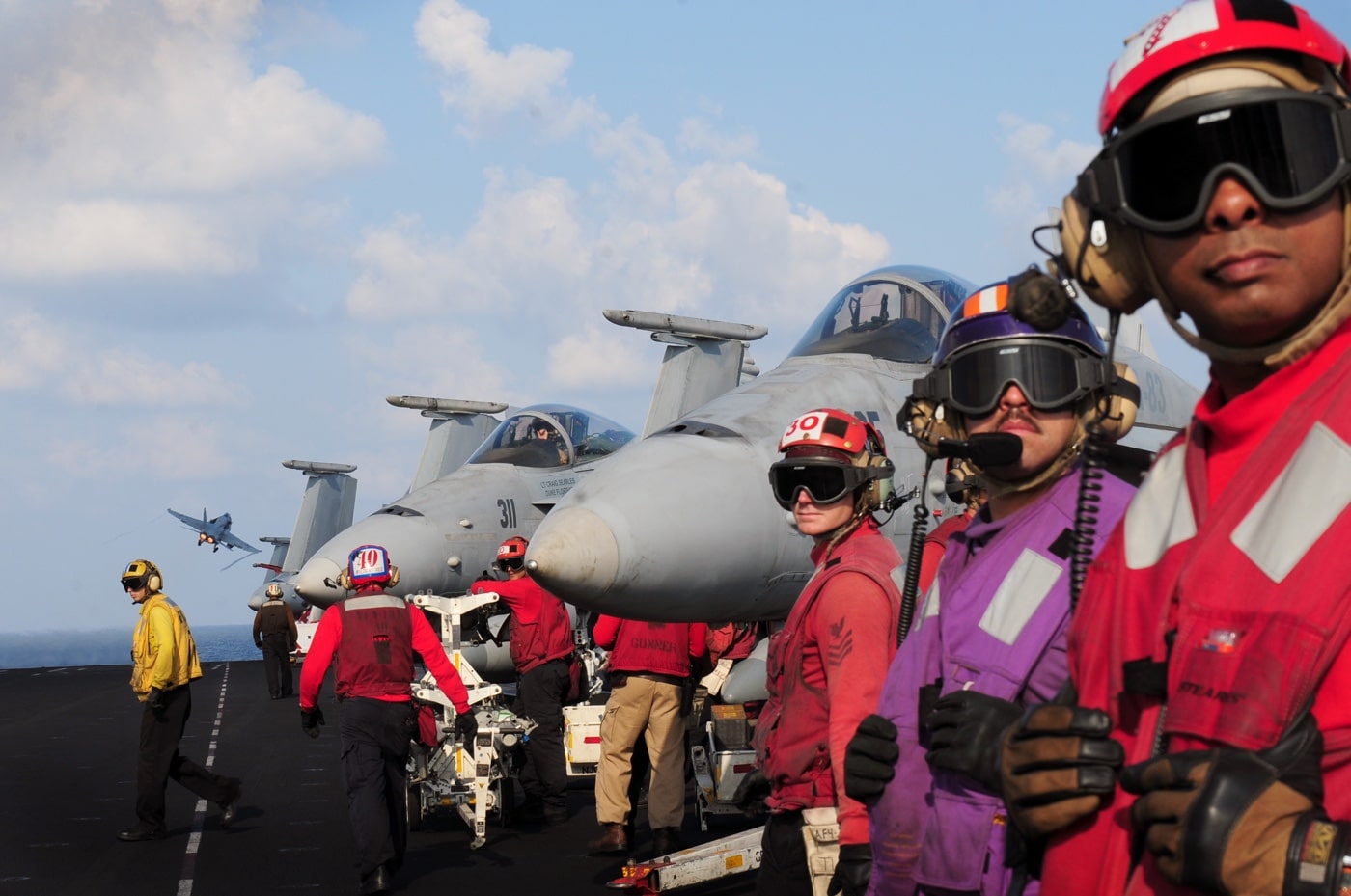
Sailors stand by while an F/A-18 Hornet launches from the flight deck of the USSDwight D. Eisenhower(CVN-69) during Operation Enduring Freedom. Image: PH1 Sabrina Fine/U.S. Navy
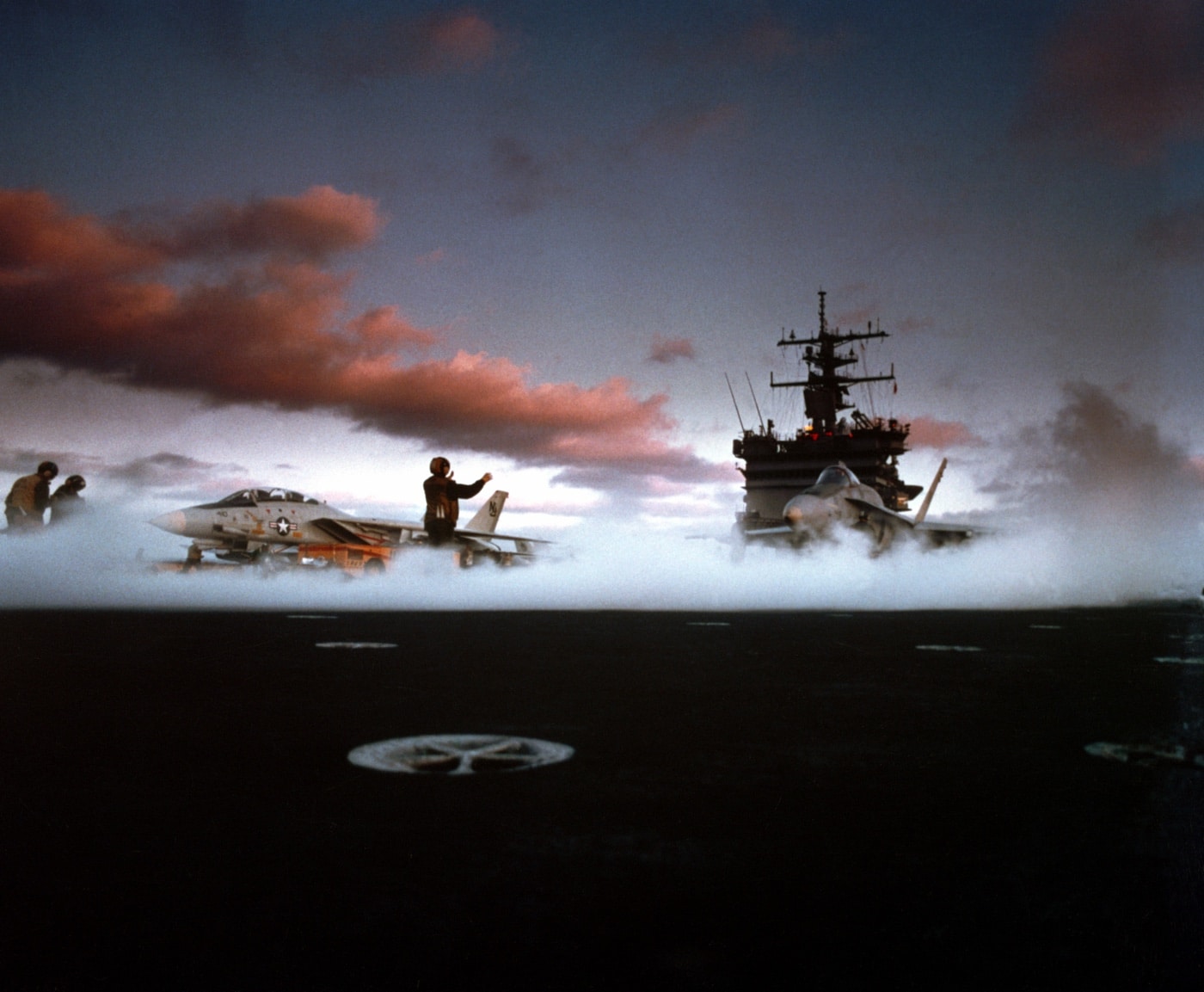
An F-14 Tomcat fighter aircraft (left) and an F/A-18 Hornet fighter aircraft are readied for catapult launch from the nucelar-powered aircraft carrier USSEnterprise(CVN-65) in 1985. Image: NARA
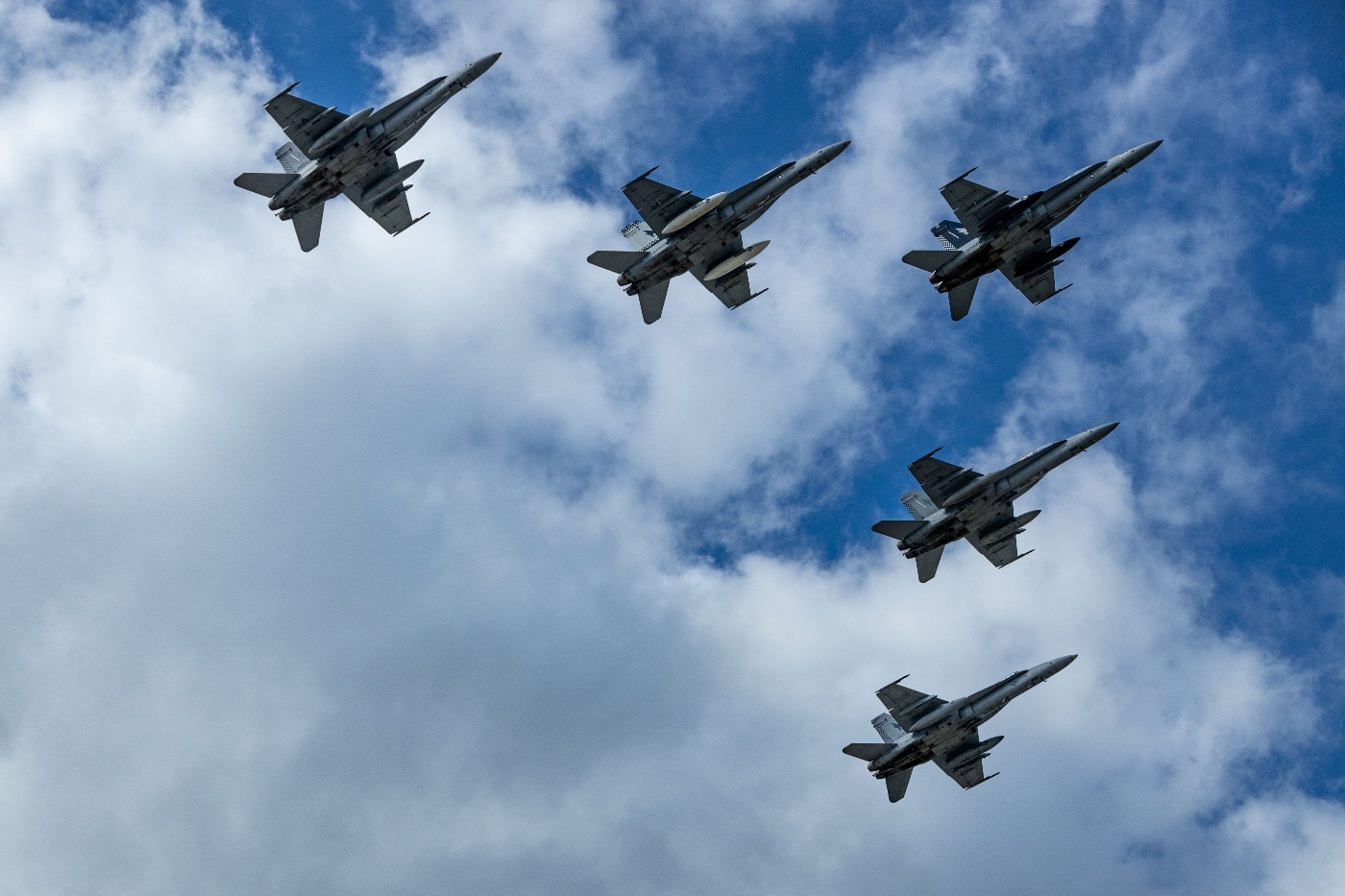
F/A-18 Hornets with Marine All Weather Fighter Attack Squadron (VMFA(AW)) 533 during the squadron’s final flight prior to transition to the F-35B Lighting II. Image: Sgt. Cheyeanne Campbell/U.S. Marine Corps
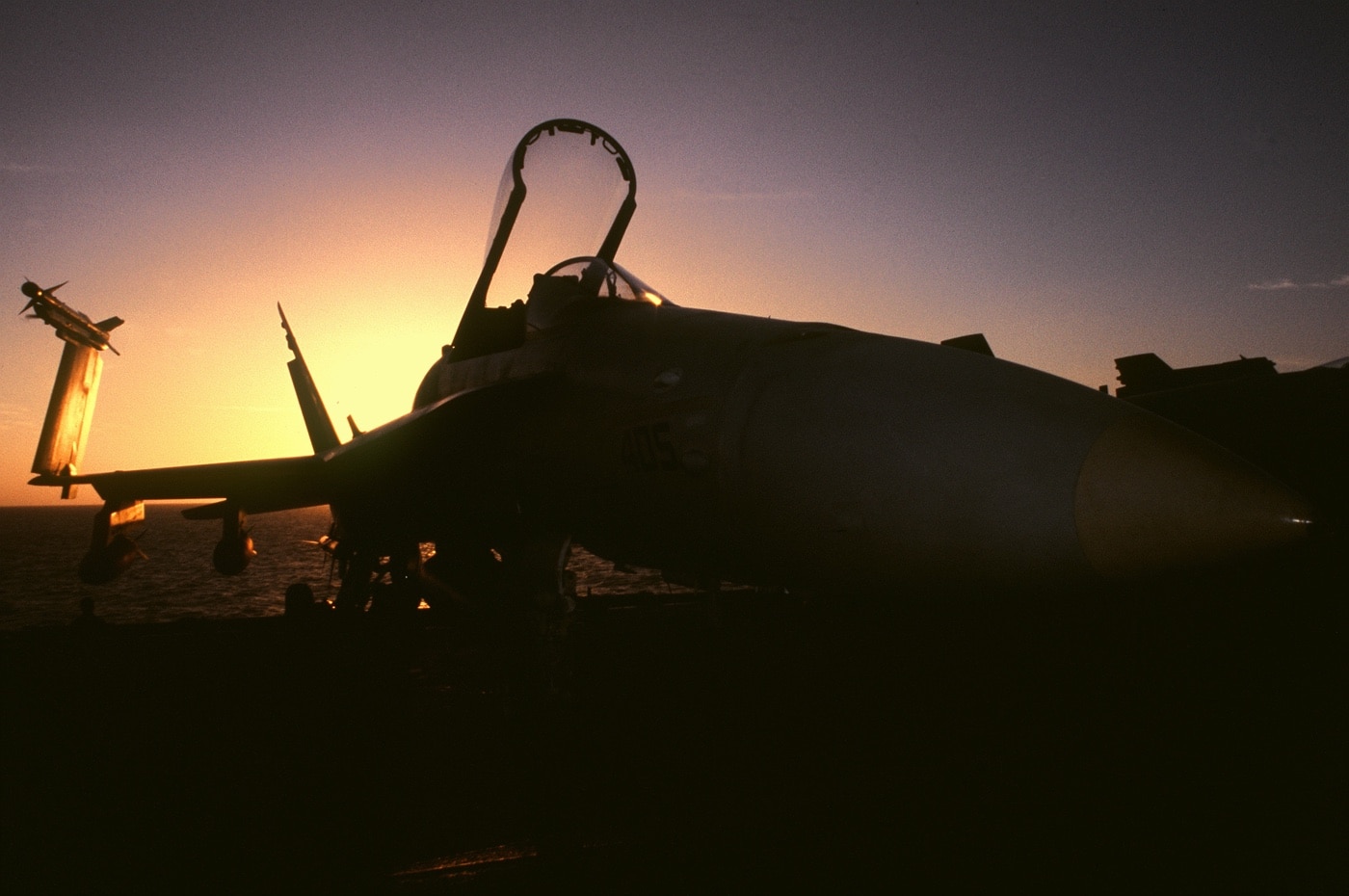
An F/A-18 Hornet aircraft stands on the flight deck of the aircraft carrier USSSaratoga(CV-60) during Operation Desert Storm. Image: PH2 Bruce Davis/U.S. Navy




